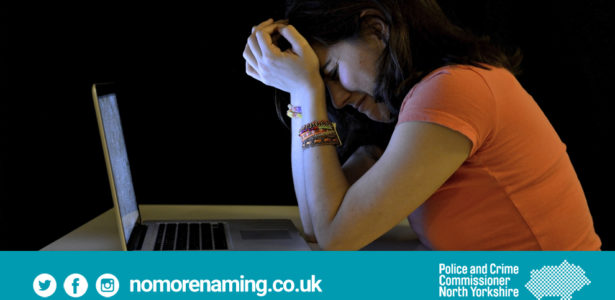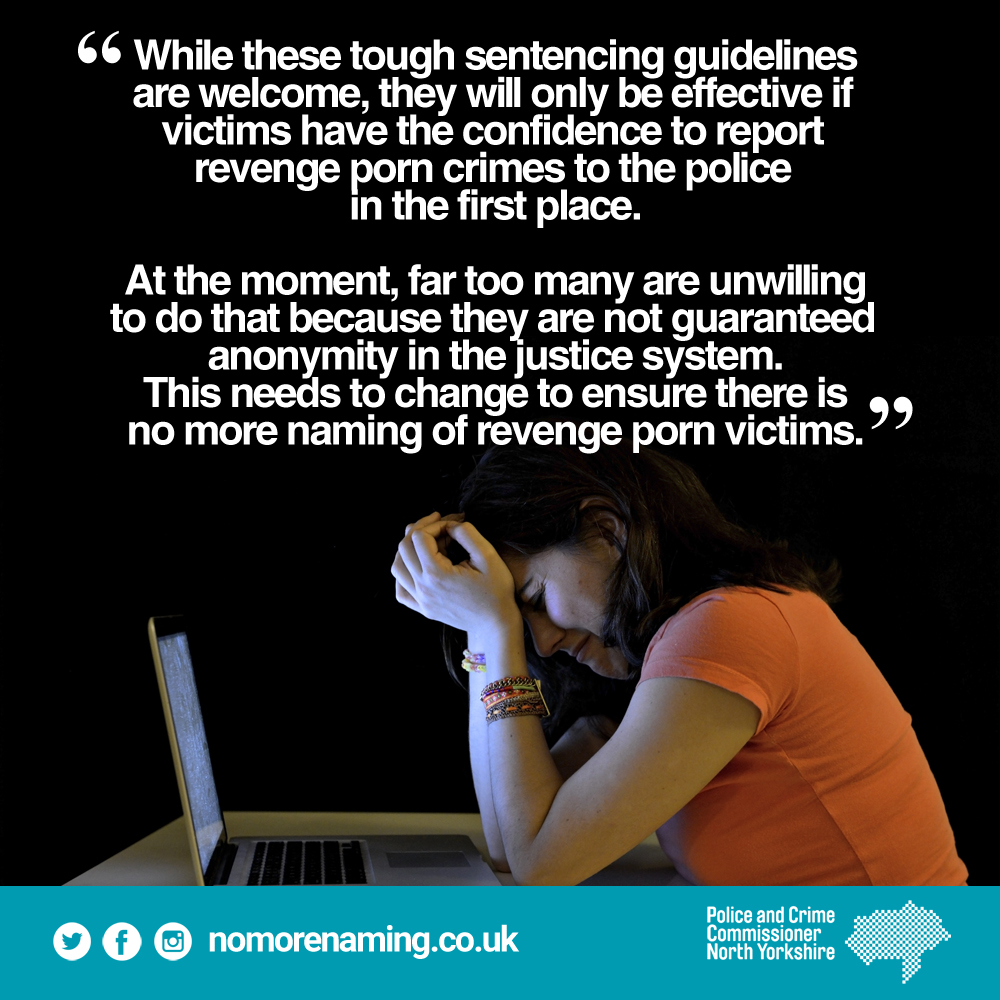Julia Mulligan comments on the revised sentencing guidelines on image based sexual abuse

Commenting on the revised sentencing guidelines on image based sexual abuse, commonly known as revenge porn, Julia Mulligan, Police and Crime Commissioner for North Yorkshire, said:
“While these tough sentencing guidelines are welcome, they will only be effective if victims have the confidence to report revenge porn crimes to the police in the first place.
“At the moment, far too many are unwilling to do that because they are not guaranteed anonymity in the justice system. This needs to change to ensure there is no more naming of revenge porn victims.
“We need to close the legal loophole that means far too many who suffer embarrassment, turmoil and distress are afraid to speak out. Only if the law changes will these sentencing guidelines provide justice for victims.
“As part of my campaign, we are currently asking victims, and those who fear they may have been, to take part in an anonymous survey. Whether reported or not, we want to find out more to support our efforts to ensure there’s no more naming.”
Revenge porn victims urged to help change the law
Julia Mulligan launches survey to gather evidence in campaign to close legal loophole
North Yorkshire’s Police and Crime Commissioner is asking for revenge porn victims to tell her about their experiences as part of the campaign for an urgent change in the law.
Julia Mulligan wants the identity of victims of Image Based Sexual Abuse, the offence commonly known as revenge porn, to have anonymity. At the moment, they have no protection in law which means anyone can name victims – across newspapers, social media and the web.
Revenge porn is described as ‘the sharing of private, sexual materials, either photos or videos, of another person without their consent and with the purpose of causing embarrassment or distress’.
On top of the crime itself, this causes ongoing distress and results in many victims not coming forward to report offences. Freedom of Information requests show that one in three allegations since 2015 have been withdrawn by the complainant.
An anonymous survey is now being launched with the aim of providing more evidence for Ministers showing why closing the loophole is vitally important.
Open to anyone who has been or thinks they may have been affected, whether an offence was reported or not, it asks about their experiences, the challenges they faced in dealing with the crime and what more should be done to support and protect them.
The survey is available for the next ten weeks, until Monday, 10 September, at www.nomorenaming.co.uk
Julia Mulligan said:
“The law on revenge porn is fundamentally flawed. It needs to change and this survey will provide me with more evidence in my campaign to ensure the legal loophole is closed once and for all.
“Victims of revenge porn suffer from the moment their most intimate moments are shared online. The fact they then have to face being publicly identified if they report the crime is unfair, unjust and unacceptable.
“It is no surprise that many choose not to report what has happened to them, or that many withdraw from the legal process as time goes on. This lack of anonymity lets down victims at a time when the system should be protecting them not exposing them to further pain and distress.
“I won’t stop fighting on this issue until the law changes.”
Currently the law classes Image Based Sexual Abuse as a ‘communications’ offence.
Julia wants the law to reclassify it as a ‘sexual’ offence which affords the victim particular rights over their identity.
The results of this new survey will then be analysed before being presented to government alongside the petition for a change in the law which has currently been signed by over 15,000 people.

